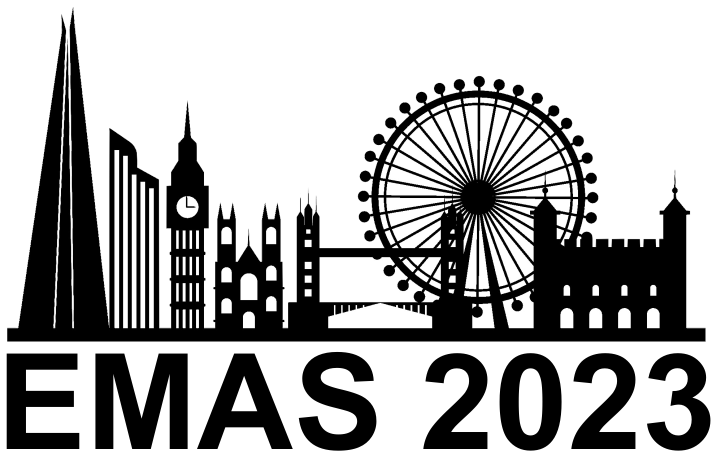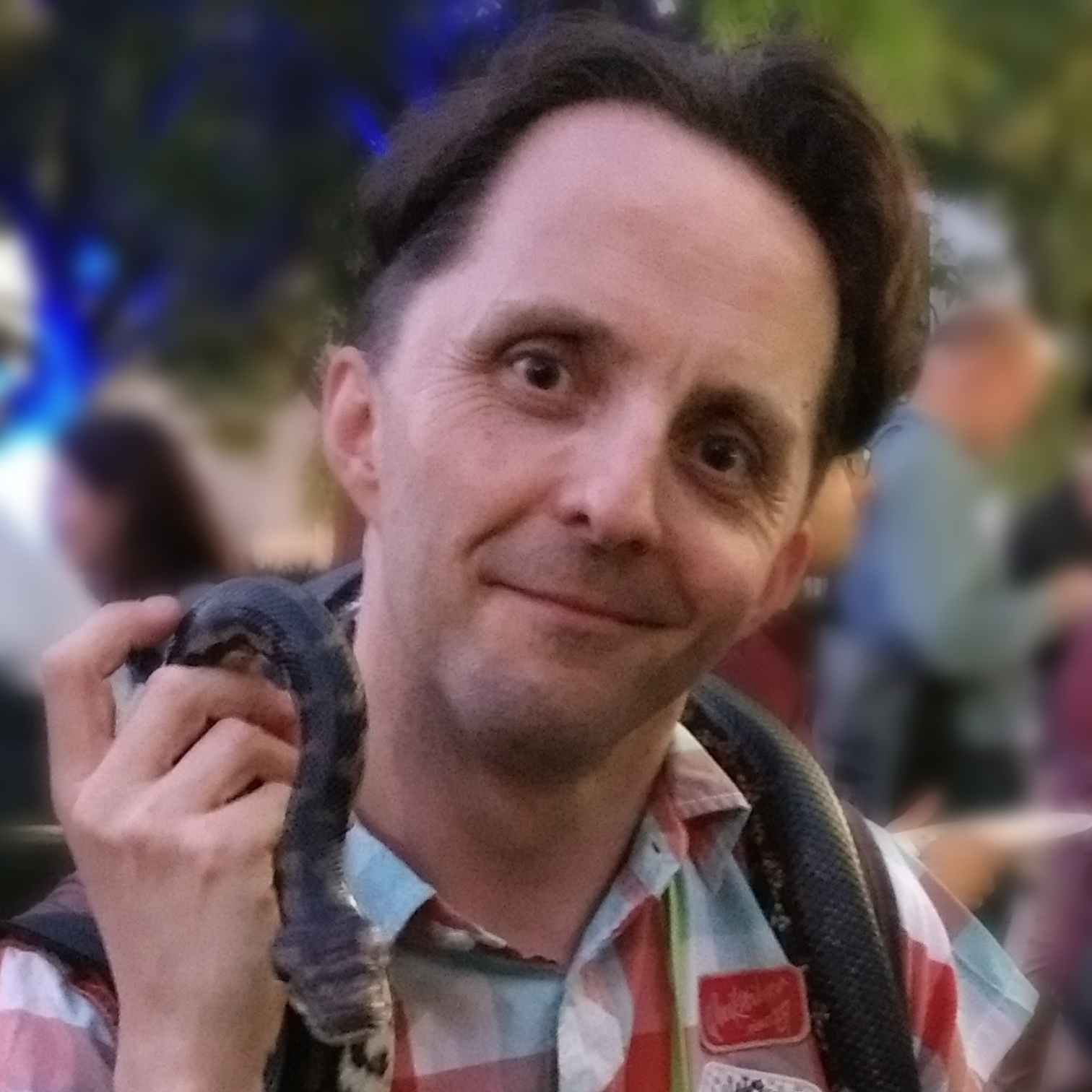
Programme
| Monday (May 29) | Tuesday (May 30) | |
|---|---|---|
| 08:30 | Arrival & Welcome | |
| 09:00 | Session 1: Agent-Oriented Software Engineering | Invited Talk: A New Solid Web for Agents that Rock Pierre-Antoine Champin (W3C) |
| 10:00 | Coffee Break | |
| 10:30 | Session 2: Agents and Microservices | Session 6: Frameworks, Tooling, and DevOps |
| 11:30 | Session 3: Strategy, Reasoning, and Planning | Panel: Learning Agents, the Web, and Industrial Applications |
| 12:30 | Lunch Break |
Panelists: [Moderator: Mehdi Dastani] Pierre-Antoine Champin (W3C) Terry Payne (University of Liverpool) Ganesh Ramanathan (Siemens) Alessandro Ricci (University of Bologna) Munindar P. Singh (North Carolina State University) Shihan Wang (Utrecht University) |
| 14:00 | Invited Talk: Learnable and Interactive Autonomous Agents through Reinforcement Learning Shihan Wang (Utrecht University) |
|
| 15:00 | Session 4: Engineering Domains and Applications | |
| 16:00 | Coffee Break | |
| 16:30 | Session 5: Agents in Hypermedia Environments | |
| 17:30 | Introduction to the Intention Progression Competition Open Session: Demos & Tech |
|
Invited Talks
Shihan Wang: Learnable and Interactive Autonomous Agents through Reinforcement Learning
(Chair: Jieting Luo)

Abstract: With the success of artificial intelligence in recent years, reinforcement learning (RL), a subfield of machine learning, has attracted great attention in recent years. Reinforcement learning also plays an important role in autonomous agents and multi-agent systems (MAS), such as autonomous driving, senor networks and games. In this talk, we will start with general information of reinforcement learning. Then, I will concentrate on the possible uses of RL in the development of interactive and learnable autonomous agents, both in single-agent and multi-agent scenarios. We will also explore the connections between RL and engineering multi-agent systems in future research.
Bio: Dr. Shihan Wang is a tenured assistant professor at Utrecht University, Intelligent systems group. She received her Ph.D. from Tokyo Institute of Technology and worked as a postdoctoral researcher at machine learning lab of University of Amsterdam. She was also a visiting researcher at Computational Social Science Lab of ETH Zurich. With a knowledge portfolio of machine learning, her current research focuses on developing efficient, scalable and reliable reinforcement learning (RL) approaches for intelligent and interactive systems. Her technical interest covers both single-agent and multi-agent RL, and their practical usage in sequential decision-making tasks. Several practical domains are especially interesting for her, including but not limited to dialogue, personalized healthcare, energy optimization and autonomous driving.
Pierre-Antoine Champin: A New Solid Web for Agents that Rock
(Chair: Andrei Ciortea)

Abstract: In 2001, Jim Hendler, Tim Berners-Lee and Ora Lassila published their vision of 'The Semantic Web', a vision in which intelligent agents (autonomous programs collaboratively achieving complex tasks on behalf of humans) played a key role. Yet, several years later, Jim Hendler was asking: 'Where are all the intelligent agents?'... and the question is still valid today.
I propose that the Web growing more and more centralized is the reason why intelligent personal agents, such as the ones envisioned in 2001, have not yet emerged. The tasks that these agents where supposed to take on are performed instead by huge platforms, aggregating data from millions of users. Who needs complex peer-to-peer collaboration processes, when you can tap all the information from a single source, right?
But this may be about to change. The numerous issues raised by that centralization are becoming more obvious everyday, and initiatives to re-decentralize the Web are gaining momentum. I will focus on the Solid project, an effort to allow for a new kind of Web applications, putting users back in control of their data. Solid is being actively developed by a community of developers, companies and public agencies, and in the process of becoming a W3C standard. But most importantly, Solid is building on existing web standards and largely based on the original Semantic Web vision. As such, it has the potential to make the Web a favourable environment for personal intelligent agents to thrive... at last!
Bio: Pierre-Antoine Champin is seconded researcher in the Wimmics group at Inria (the French National Institute for Research in Digital Science and Technology). He has been a W3C fellow since February 2021. In the W3C, he is part of the strategy team, focusing on activities related to data interoperability and knowledge graphs.
Sessions
Session 1: Agent-Oriented Software Engineering (Chair: Brian Logan)
| 09:00-09:15 | Rafael C. Cardoso, Angelo Ferrando, Joe Collenette, Louise Dennis, and Michael Fisher. Towards Forward Responsibility in BDI Agents (Slides) |
| 09:15-09:30 | Giuseppe Petrosino, Stefania Monica, and Federico Bergenti. Imperative and Event-Driven Programming of Interoperable Software Agents |
| 09:30-09:45 | Yi Yang and Tom Holvoet. vGOAL: a GOAL-based Specification Language for Safe Autonomous Decision-Making (Slides) |
| 09:45-10:00 | Q&A and Joint Discussion |
Session 2: Agents and Microservices (Chair: Alessandro Ricci)
| 10:30-10:45 | Aditya Khadse, Samuel Christie, Munindar P. Singh, and Amit Chopra. Protocol-Based Engineering of Microservices (Slides) |
| 10:45-10:55 | Eoin O'Neill and Rem Collier. Exploiting Service-Discovery and OpenAPI in Multi-Agent MicroServices (MAMS) Applications |
| 10:55-11:05 | Martynas Jagutis, Sean Russell, and Rem Collier. Using Multi-Agent MicroServices (MAMS) for Agent-Based Modelling (Slides) |
| 11:05-11:30 | Q&A and Joint Discussion |
Session 3: Strategy, Reasoning, and Planning (Chair: Rafael C. Cardoso)
| 11:30-11:45 | Maksim Gladyshev, Natasha Alechina, Mehdi Dastani, and Dragan Doder. Dynamics of Causal Dependencies in Multi-agent Settings (Slides) |
| 11:45-12:00 | Sanjay Chandlekar, Easwar Subramanian, and Sujit Gujar. Multi-armed Bandit Based Tariff Generation Strategy for Multi-Agent Smart Grid Systems (Slides) |
| 12:00-12:15 | Poom Pianpak, Jiaoyang Li, and Tran Cao Son. Load Balancing in Distributed Multi-Agent Path Finder (DMAPF) (Slides) |
| 12:15-12:30 | Q&A and Joint Discussion |
Session 4: Engineering Domains and Applications (Chair: Angelo Ferrando)
| 15:00-15:15 | Fenghui Ren and Jun Yan. A Multi-Agent Approach for Decentralized Voltage Regulation in Micro Grids by Considering Distributed Generators |
| 15:15-15:25 | Ganesh Ramanathan. Synthesizing Multi-agent System Organization from Engineering Descriptions (Slides) |
| 15:25-15:35 | Stefano Mariani, Marco Picone, and Alessandro Ricci. Towards developing Digial Twin enabled Multi-Agent Systems (Slides) |
| 15:35-16:00 | Q&A and Joint Discussion |
Session 5: Agents in Hypermedia Environments (Chair: Daniela Briola)
| 16:30-16:45 | Alexandru Sorici and Adina Magda Florea. Towards Context-based Authorizations for Interactions in Hypermedia-driven Agent Environments — The CASHMERE Framework (Slides) |
| 16:45-16:55 | Samuele Burattini, Andrei Ciortea, Meshua Galassi, and Alessandro Ricci. Agents & Artifacts at the Knowledge Level (Slides) |
| 16:55-17:05 | Antoine Zimmermann, Andrei Ciortea, Catherine Faron, Eoin O'Neill, and María Poveda-Villalón. Pody: A Solid-based Approach to Embody Agents in Web-based Multi-Agent Systems (Slides) |
| 17:05-17:30 | Q&A and Joint Discussion |
Session 6: Frameworks, Tooling, and DevOps (Chair: Rem Collier)
| 10:30-10:45 | Daniela Briola, Angelo Ferrando, and Viviana Mascardi. Fantastic MASs and where to find them: First results and lesson learned (Slides) |
| 10:45-11:00 | Andrei Olaru, Gabriel Nicolae, and Adina Magda Florea. The Entity-Operation Model for Practical Multi-entity Deployment (Slides) |
| 11:00-11:10 | Dennis Maecker, Henning Gösling, and Oliver Thomas. Remote Deployment of a JADE Agent in Docker (Slides) |
| 11:10-11:30 | Q&A and Joint Discussion |